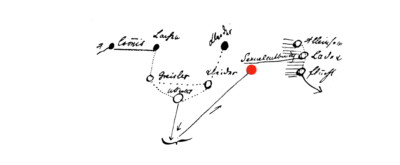In her talk at the Center for Psychoanalytic Thought, Jenny Willner
enters the Hungarian garrison town of Pápa in 1914, where Freud’s theory
of sexuality met popular Darwinism in a soldiers’ library. These were
the circumstances under which the Hungarian psychoanalyst Sándor
Ferenczi drafted the first version of his theory of genitality:
Thalassa. Willner offers a new frame for reading this book, challenging
the perception that the phylogenetic parallel in the work of Ferenczi
and Freud sought to provide psychoanalysis with a natural scientific
foundation. Instead, their ‘bioanalytic’ speculations deconstruct
precisely what claims such a founding status. While the preoccupation
with the aquatic origins of man may seem like a retreat from political
matters, Thalassa, at a closer look, holds a unique position within the
conflict of scientific and political perspectives over evolutionary
descent at the end of the ‘long 19th century’. At a time when
‘Darwinism’ becomes a source for eugenicist projects, Ferenczi rewrites
the terms of an entire discourse – by using concepts drawn from the
psychoanalytic study of hysteria. There is a libidinal investment that
can be sensed already in Ernst Haeckel. It is spelled out overtly in
Wilhelm Bölsche’s ‘erotic monism’ – and re-interpreted in connection to
trauma in Ferenczi’s Thalassa.
For more on this subject, look out for Raluca Soreanu, Jakob Staberg,
Jenny Willner: Ferenczi Dialogues. On Trauma and Catastrophe,
forthcoming at Leuven University Press in January 2023, ISBN:
9789462703520
Licenses for the following photographs were obtained:
Shoal of fish – iStock.com/Alexpunker
Herring – iStock.com/akinshin
Ascidiacea – iStock.com/LaSalle-Photo
Mating frogs – iStock.com/Anne Coatesy
Mating nile crocodiles – iStock.com/USO
